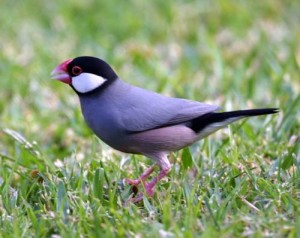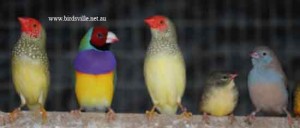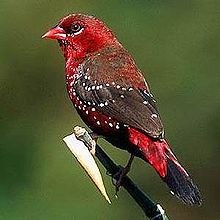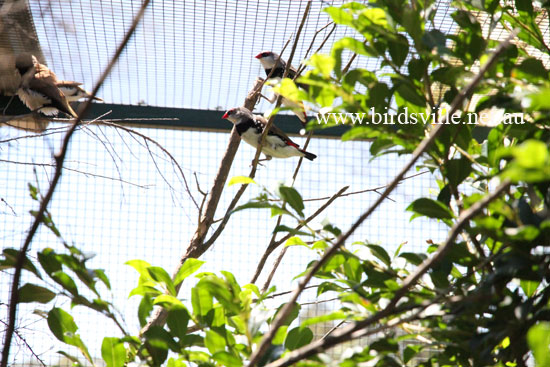Java Finch
 Found in store, for more details call Birdsville 9667 2555. More information coming soon.
Found in store, for more details call Birdsville 9667 2555. More information coming soon.
Natural Distribution and Habitat
Native to indonesia they live on the islands of Bali and Java not so common as they once were in their native homeland although there is some feral populations in asia, fiji and africa. In the wild java finches will be found in open grasslands and woodlands.
Diet to feed for Java Finches
Seed– Despite having a large beak these birds still require a finch mix, be sure to feed your birds a good quality finch mix especially if you desire to breed. Be wary of some supermarket mixes as they may not be the best quality. If you are unsure of the seed you are using ask your local bird expert.
Sprouted seed– Java finches love sprouted seed but be sure to clean thoroughly with aviclens befor feeding to your birds to remove any bacteria. Mung beans and sun flower make a good adition to your normal finch sprouted mix.
Fruit– apple, pear, figs and paw paw
Greens– seeding grasses, lebanese cucumber, silver beet, chickweed and endive.
Vitamin supplement– added via the water supply this is an important supplement to keep your finches in top condition, with many good vitamin supplements available in Australia.
Live food– During breeding java finches will eat a lot of live food such as meal worms and fly pupae.
Egg and biscuit– Jave finches relish egg and biscuit formula and will eat loads of it when they are feeding chicks.
Grit– Use a good quality finch mix containing charcoal, shell, baked egg shell, crushed cuttle bone and limestone.
Breeding Jave Finches
These large finches need a large nest. When i breed java finches i use a budgie nesting box and i wouldn’t recommend a nest box any smaller as they can have up to 7 chicks and then the parents also in their at one time and this is why they need so much space. A variety of nesting material should be supplied such as whiite feathers, swamp grass and long grass stems which they prefer to use for the base of the nest when they begin construction.
The hen will lay around 6 or 7 white eggs with an incubation period of 14 days. The nestlings will remain in the nest for a further 5 weeks befor they venture outside for the first time. The parent birds will continue to feed the young for a further 4 weeks while they learn to crack seed for them self.
Sexing Jave Finches
Very difficult to to sex but if you examine them closely the male will have a more solid upper mandible.
Availability and licence requirements
Once very common, they have become much less common in aviculture the past few years they are available at birdsville from time to time. There is no licence required to purchase Jave finches in NSW.


